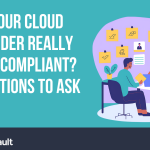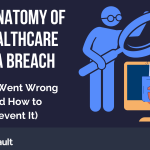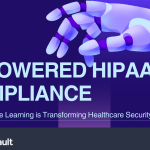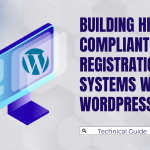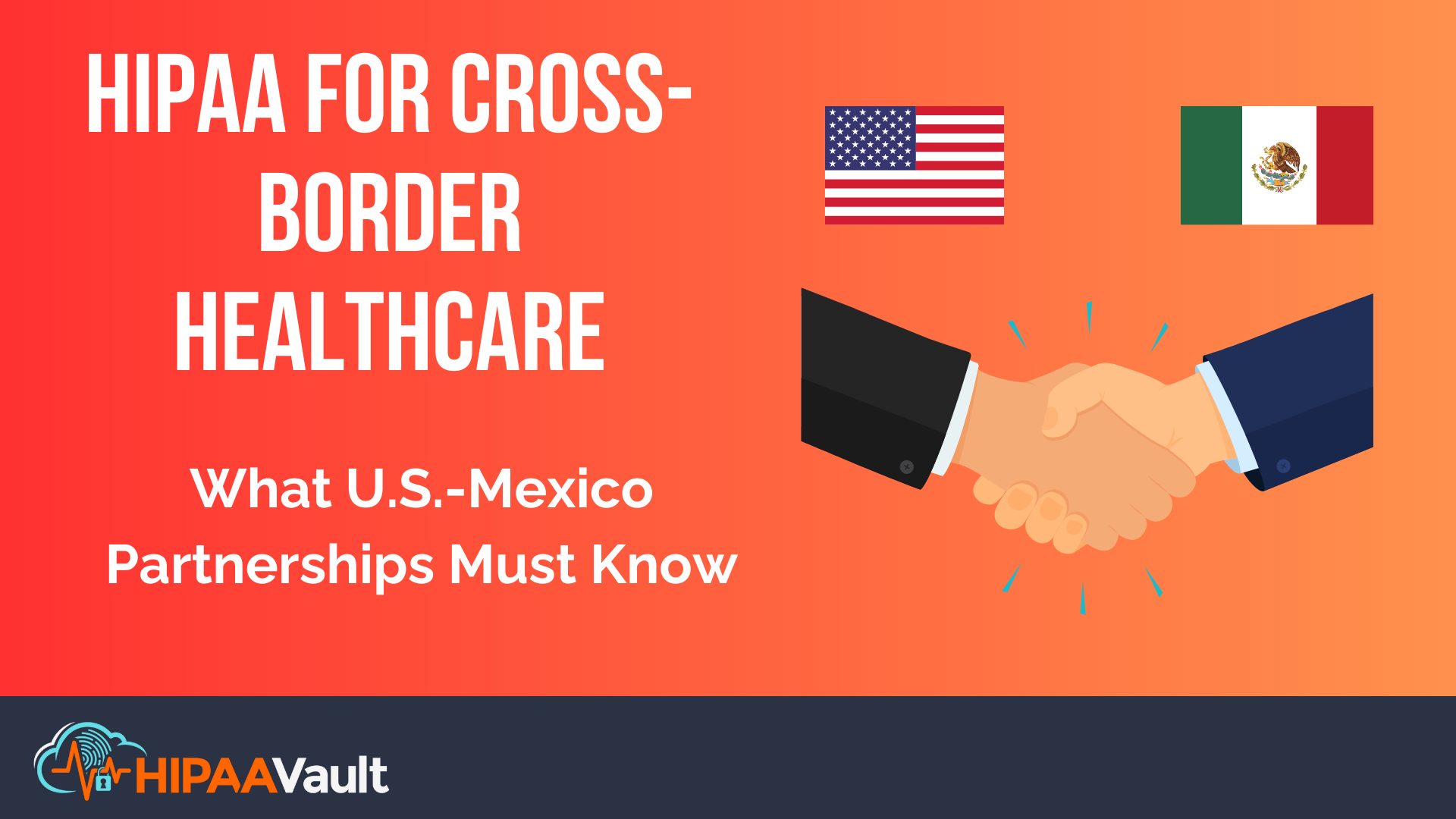
HIPAA for Cross-Border Healthcare: What U.S.-Mexico Partnerships Must Know
Introduction: The Growing Intersection of Compliance and Global Collaboration
As healthcare delivery and innovation continue to globalize, partnerships between U.S. providers and organizations in Mexico are becoming more common. Whether for medical tourism, outsourced administrative services, or cross-border research efforts, these relationships often involve the exchange or processing of Protected Health Information (PHI) originating in the United States.
This movement toward international collaboration brings important benefits—cost savings, expanded capacity, and diverse clinical insight. However, it also introduces complex regulatory obligations under HIPAA, particularly when PHI is stored, accessed, or transmitted outside of the U.S. healthcare system.
This article provides a strategic roadmap for healthcare organizations seeking to establish or manage HIPAA-compliant operations in cross-border contexts, with a special focus on U.S.-Mexico partnerships. We’ll explore the most critical legal considerations, operational risks, and secure infrastructure practices to ensure data remains protected—no matter where it travels.
Why U.S.-Mexico Healthcare Collaborations Are on the Rise
Healthcare partnerships between the U.S. and Mexico are not just a theoretical concept—they’re a growing reality shaped by economic and logistical trends. Many U.S. patients travel south for elective procedures, dental work, or prescription medications, thanks to significantly lower out-of-pocket costs and shorter wait times. This has led to a thriving medical tourism economy in Mexican border cities and beyond.
In parallel, U.S. healthcare organizations are increasingly outsourcing non-clinical operations—such as billing, coding, IT support, and telehealth call centers—to partners in Mexico. These functions often require access to PHI, triggering the need for robust compliance frameworks that align with HIPAA standards.
Academic and clinical research collaborations are also gaining momentum. From binational biotech ventures to shared diagnostic studies, these partnerships can involve sensitive patient data and proprietary methodologies. As such, the compliance landscape must evolve to support these global efforts without compromising data integrity or privacy.
HIPAA’s Global Reach: What Cross-Border Entities Must Understand
One of the most misunderstood aspects of HIPAA is the assumption that it only applies within the territorial boundaries of the United States. In reality, HIPAA’s reach is defined by the origin of the PHI and the entities handling it—not their geographic location.
If a U.S. hospital or clinic (a HIPAA-covered entity) engages with a third-party service provider in Mexico that handles PHI—whether through a help desk, data analysis, or storage function—that foreign vendor becomes a business associate under HIPAA. This designation carries clear legal and operational responsibilities.
Importantly, this includes signing a Business Associate Agreement (BAA)—a legally binding document that outlines the safeguards required, permissible uses of data, and breach notification procedures. Without a valid BAA, even the most well-intentioned cross-border collaboration can become a regulatory liability.
Organizations must also be aware that Mexican privacy laws, while robust in certain areas, are not interchangeable with HIPAA. Alignment must be proactively managed to avoid gaps in security expectations or accountability. Simply assuming that local data practices meet U.S. standards can lead to serious compliance failures.
Hidden Risks of Cross-Border Healthcare Data Handling
Operating across borders introduces specific vulnerabilities that U.S.-based healthcare organizations must anticipate and mitigate. One of the most significant concerns is data transmission over unsecured channels. PHI sent via non-encrypted email, consumer messaging apps, or public file-sharing platforms falls well short of HIPAA’s technical safeguard requirements.
Another common risk involves insufficient training for overseas personnel. Employees or contractors who are unfamiliar with HIPAA protocols may inadvertently mishandle PHI—whether by accessing records without authorization, failing to log out of systems, or responding improperly to a potential breach.
Additionally, physical and environmental security standards may differ across locations. For instance, a small IT support facility in Mexico may not have the same physical safeguards (such as access controls or camera surveillance) required in a U.S. data center. Even digital safeguards like intrusion detection systems and encryption at rest may be underdeveloped without proper oversight.
The reality is that cross-border data management demands a higher level of due diligence. Healthcare organizations must treat foreign vendors with the same, if not more, scrutiny as their domestic partners when it comes to risk management and regulatory compliance.
Compliance Checklist for Cross-Border Healthcare Operations
To maintain HIPAA compliance in a cross-border context, especially with U.S.-Mexico healthcare partnerships, organizations should implement the following:
- Business Associate Agreements (BAAs)
- Execute enforceable BAAs with all vendors handling PHI
- Define security controls and breach protocols in writing
- Execute enforceable BAAs with all vendors handling PHI
- Secure Data Transfer Methods
- Use TLS-encrypted email, SFTP, and VPN access
- Avoid public or non-compliant file sharing platforms
- Use TLS-encrypted email, SFTP, and VPN access
- Workforce Training
- Train Mexico-based personnel in HIPAA standards and breach response
- Conduct refresher sessions and compliance audits regularly
- Train Mexico-based personnel in HIPAA standards and breach response
- Access Controls and Audit Logs
- Restrict PHI access based on job role
- Enable audit trails to track user activity and identify anomalies
- Restrict PHI access based on job role
- HIPAA-Compliant Cloud Hosting
- Use platforms meeting FedRAMP, HITRUST, or FISMA standards
- Verify encryption, uptime, and scalability with your hosting partner
- Use platforms meeting FedRAMP, HITRUST, or FISMA standards
How HIPAA Vault Helps Safeguard Cross-Border PHI
While HIPAA Vault has not publicly disclosed specific cross-border client relationships, it provides a robust suite of HIPAA-compliant cloud and security services that are directly applicable to organizations operating in international contexts.
As a certified Google Cloud Technology Partner, HIPAA Vault delivers cloud infrastructure that meets FedRAMP, FISMA, and HITRUST CSF requirements, offering end-to-end encryption, role-based access, and detailed logging. These are exactly the types of capabilities that cross-border healthcare operations require to maintain continuous compliance with HIPAA, regardless of where their partners reside.
In addition to its infrastructure, HIPAA Vault offers:
- Encrypted email and secure FTP solutions for reliable and compliant PHI transmission
- Comprehensive BAA support to help clients define and enforce regulatory expectations with third-party vendors
- 24/7/365 live support from compliance-savvy professionals with <15-minute response times
- Proven experience supporting high-stakes, security-sensitive deployments such as the Wyoming Eligibility System, Deloitte, and Akos MD
Organizations with international aspirations can confidently leverage HIPAA Vault’s services to build scalable, compliant environments that align with both U.S. and global healthcare priorities.
Conclusion: Compliance Is the Gateway to Global Opportunity
Cross-border healthcare presents an exciting opportunity for innovation, collaboration, and improved access to care. But to make those partnerships sustainable—and legally viable—U.S.-based organizations must approach HIPAA compliance with rigor and strategic foresight.
Whether working with a partner in Tijuana, Guadalajara, or elsewhere in the global healthcare landscape, the rules governing PHI remain clear: protect it at all costs and ensure your partners are equipped to do the same.
By choosing a trusted provider like HIPAA Vault to manage your cloud infrastructure, encrypted communications, and compliance strategy, your organization can meet the demands of international expansion without compromising on security or integrity.
Need a Compliance Partner for Your International Healthcare Operations?
HIPAA Vault’s secure cloud hosting, encrypted communication tools, and expert support teams are ready to help you build and maintain a fully HIPAA-compliant framework—across borders and beyond.
Contact us today to become HIPAA-Compliant

